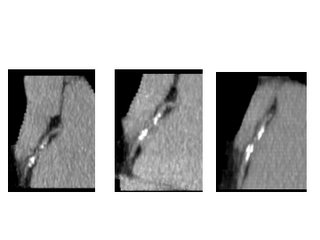
Do you know what's better than a heart scan?
Two heart scans. No other method can provide better feedback on the results of your program.
Say you've made efforts to correct high LDL; lost weight to raise HDL and reduce small LDL; added soluble fibers, nuts, and dramatically reduced wheat products; take fish oil, vitamin D, and follow a flavonoid-rich diet. Has it worked?
After a year or so of your program, that's when another heart scan can give you invaluable feedback on whether it's been successful. I tell my patients that it's relatively easy to correct lipid and lipoprotein abnormalities. The difficult part is to know when it's good enough. Is your LDL of 67 mg/dl and HDL of 50 mg/dl good enough? Another heart scan score is the best way I know of to find out.
Variation in plaque growth differs hugely from one person to another, even at equivalent lipoprotein values. Why? Lots of reasons. Humans are inconsistent day to day. Lipoproteins, being a snapshot in time and not a cumulative value, change somewhat from day to day. There's also the possibility of unmeasured, unrecognized factors that influence coronary plaque growth. We may not be smart enough to identify these hidden factors yet. But your heart scan score will incorporate the effects of these hidden factors.
Ideally, we aim for zero growth in plaque (no change in score) or a reduction. But, particularly in the first year, 10% or less plaque growth is still a good result that predicts much reduced risk of heart attack. More than 20% per year and your program needs more work--or else you know what's ahead.